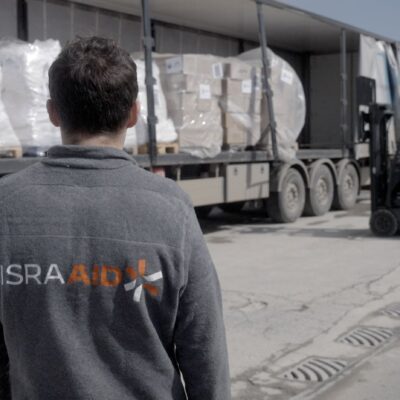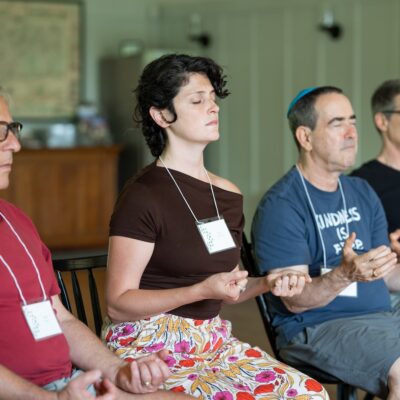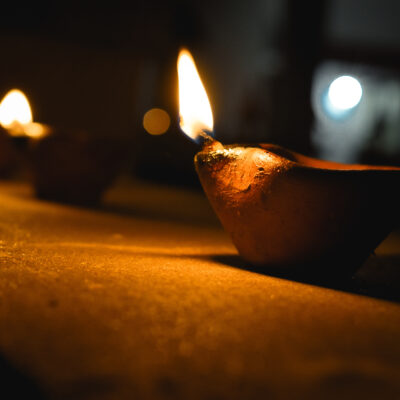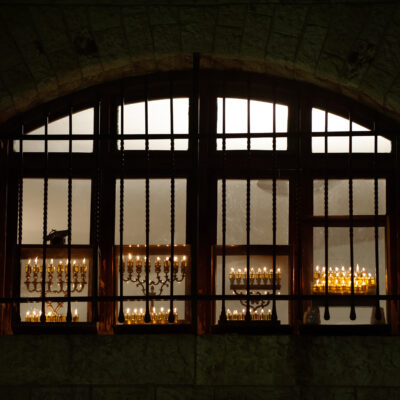Jewish and Israeli relief organizations respond to Myanmar quake
Jewish and Israeli relief organizations are responding to a 7.7-magnitude earthquake in Myanmar, which dealt a severe blow to the war-torn country’s infrastructure over the weekend, killing over 2,000 and injuring thousands more. Fatalities are likely to climb significantly as the dust settles and more aid reaches the area, according to Avital Sandler-Loeff, executive director of the American Jewish Joint Distribution Committee’s disaster relief and international development unit.
“The magnitude of this disaster is huge,” Sandler-Loeff told eJewishPhilanthropy. “People are lying on the streets in the rubble. There are no refugee camps yet and no tents, nowhere for them to sleep. We hope that things will get better because in about two weeks, the rainy season is about to start.”
The epicenter of Friday’s earthquake was located near Mandalay, Myanmar’s second largest city, toppling structures and reducing much of the area’s infrastructure to rubble. The infrastructure was already spread thin by a preexisting crisis: the Burmese Civil War, which has internally displaced millions since May 2021, but has also drawn a number of aid organizations to the area, meaning they already had a presence in the country ahead of the earthquake.
The Jewish community in Myanmar — which consists of fewer than two dozen members — is located outside of the disaster zone and has been relatively unscathed by the crisis, according to Sandler-Loeff. JDC, which largely works through partnership with local organizations, is also sending a small team to assess immediate needs, which include clean water, medical supplies, food, and sanitation infrastructure. It will take several months to meet these needs completely, she said, and rebuilding will take years.
“It will take years — at least two years to see the place rebuilt. Taking into consideration that the war is still there, it might take even more,” she told eJP.
Dyonna Ginsburg, the CEO of Olam — a network of 78 Jewish and Israeli organizations that work in the fields of humanitarian aid, international development and global volunteering — said that a number of organizations in her network, including JDC, are responding to the crisis. The State of Israel has also deployed a team of experts — military and civilian — to Thailand to assist in search-and-rescue operations there, the military said earlier this week.
IsraAID is deploying an emergency response team to conduct assessments in the coming days, with a focus on access to safe water, sanitation and hygiene, and Natan, an Israeli organization that provides teams of skilled volunteers, will be sending a team of medical doctors, social workers and logistical experts. “Both of them are doing that in partnership with the Israeli ambassador to Myanmar,” Ginsburg said.
SmartAID, which has provided clean energy and other aid to displaced persons along the Myanmar-Thailand border for over a year now, will be leveraging its existing network to respond to the crisis, according to Shachar Zahavi, the organization’s founding director. SmartAID’s efforts will be focused on deploying a search and rescue team to help alongside local first responders, setting up a technological hub that can be used to coordinate relief efforts, and providing water, WiFi and electricity for first responders and those affected.
“You need electricity to be able to see at night, to be able to read, to be able to store cold food and medicine. Women cannot go to the bathrooms and to showers without electricity, because there’s a lot of gender based violence during the night. So electricity is one of the most basic needs in a disaster,” Zahavi told eJP.
According to Zahavi, the majority of aid organizations with boots on the ground in Myanmar were there prior to the quake. He anticipates there are many more en route.
“Because of the sheer size of the crisis, it’s one of the first times in many years that the local government has actually asked for international aid,” he said.
According to Ginsburg, relief efforts in Myanmar have been complicated by government cuts to foreign aid in both the United States and the United Kingdom, which are shaking the sector.
“There are tectonic changes that are happening in the larger international development and humanitarian aid ecosystem,” said Ginsburg. “It’s definitely impacting the larger sector, and we’re very much in the thick of it. There are large philanthropic shifts that are currently underway, and the dust has not yet settled.”
Many Jewish and Israeli organizations have separate funding sources that have protected them from that impact, according to Ginsburg. But tasked with providing relief in Israel following Oct. 7 while continuing their international work, the Jewish and Israeli organizations are feeling the squeeze of a new and solitary struggle — while many organizations have received more support following their relief efforts in Israel, they’ve also faced isolation as some secular aid organizations and funders have distanced themselves from Jewish and Israeli organizations.
“We’ve seen Jewish philanthropy, understandably, shift towards supporting needs in Israel and combating antisemitism and internal Jewish needs — and away from some global causes. And we’ve seen some examples of secular philanthropy, non-Jewish philanthropy, wanting to distance itself from Jewish or Israeli organizations doing this work,” Ginsburg told eJP. “Many of these organizations, in terms of their global work, have been caught between a rock and a hard place.”

 Add EJP on Google
Add EJP on Google












